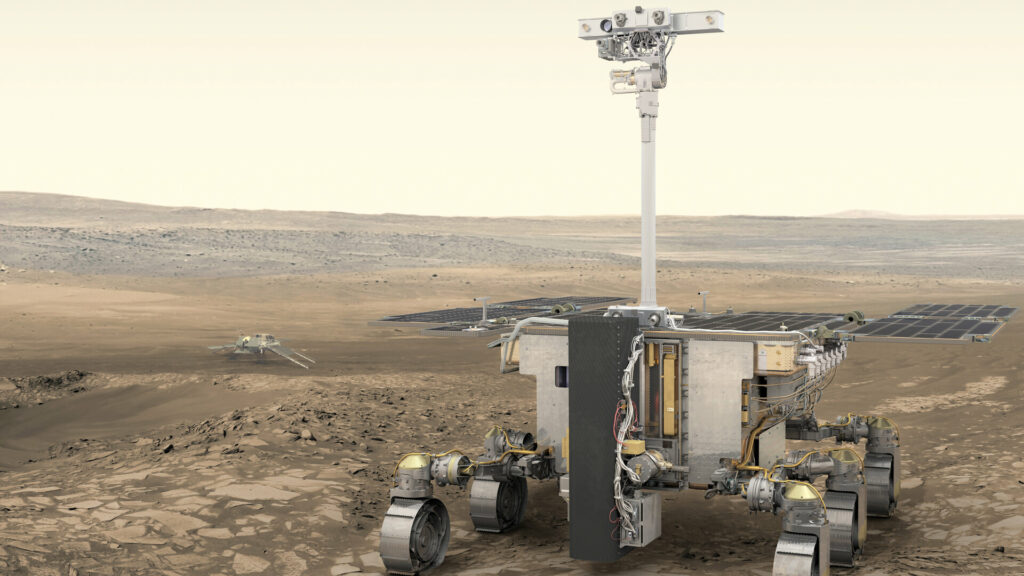The European Space Agency (ESA) has decided to finally terminate cooperation with Roscosmos within the framework of the ExoMars project. This was stated by the general director of the organization, Josef Aschbacher.
Short history of the ExoMars project
ESA and Roscosmos signed an agreement on the joint implementation of the ExoMars project in 2012. Its main goal was to search for evidence of the existence of life on the Red Planet in the past and present.

As part of the first stage, in 2016, the TGO spacecraft with the Schiaparelli descent module was launched to Mars. While Schiaparelli crashed during landing, TGO successfully entered an areocentric orbit and began exploring the Martian atmosphere. In the future, the device also had to take on the function of a repeater for the rover.
The implementation of the second phase of ExoMars was scheduled for September 2022. Within its framework, a bundle from the Russian landing platform “Kazachok” and the European rover Rosalind Franklin was to go to Mars. The last should have been engaged in the search for biomarkers. For this purpose, Rosalind Franklin was equipped with a drill capable of extracting rock samples from a depth of up to 2 m, and its own laboratory in which their chemical analysis will be carried out.
Disconnection with Russia
The full-scale Russian invasion of Ukraine put an end to these plans. In protest, the ESA decided to freeze cooperation with the aggressor country. Now the management of the organization has made a final decision to terminate any cooperation.
On a different note, today @ESA Council addressed the ExoMars Rover and Surface Platform mission, acknowledging that the circumstances which led to the suspension of the cooperation with Roscosmos – the war in Ukraine and the resulting sanctions – continue to prevail.
— Josef Aschbacher (@AschbacherJosef) July 12, 2022
The Russian “response” was not long in coming. In retaliation, Dmitry Rogozin ordered to stop work on the inclusion of the European ERA robot manipulator. It is installed on the “Nauka” (Science) module and was intended to accommodate equipment, launch satellites and support spacewalks. Disabling ERA will greatly weaken the capabilities of “Nauka” and, in fact, it can be compared to “shooting yourself in the foot”. But, the leadership of Roscosmos (as well as the whole of Russia) has not paid attention to such moments for a long time.
As for ExoMars, after the rupture of relations with Russia, the mission now needs a new carrier and a new landing platform. Replacing them is a difficult task and will take several years. According to recent estimates, Rosalind Franklin is now unlikely to be launched before 2026-2028.
Follow us on Twitter to get the most interesting space news in time
https://twitter.com/ust_magazine

